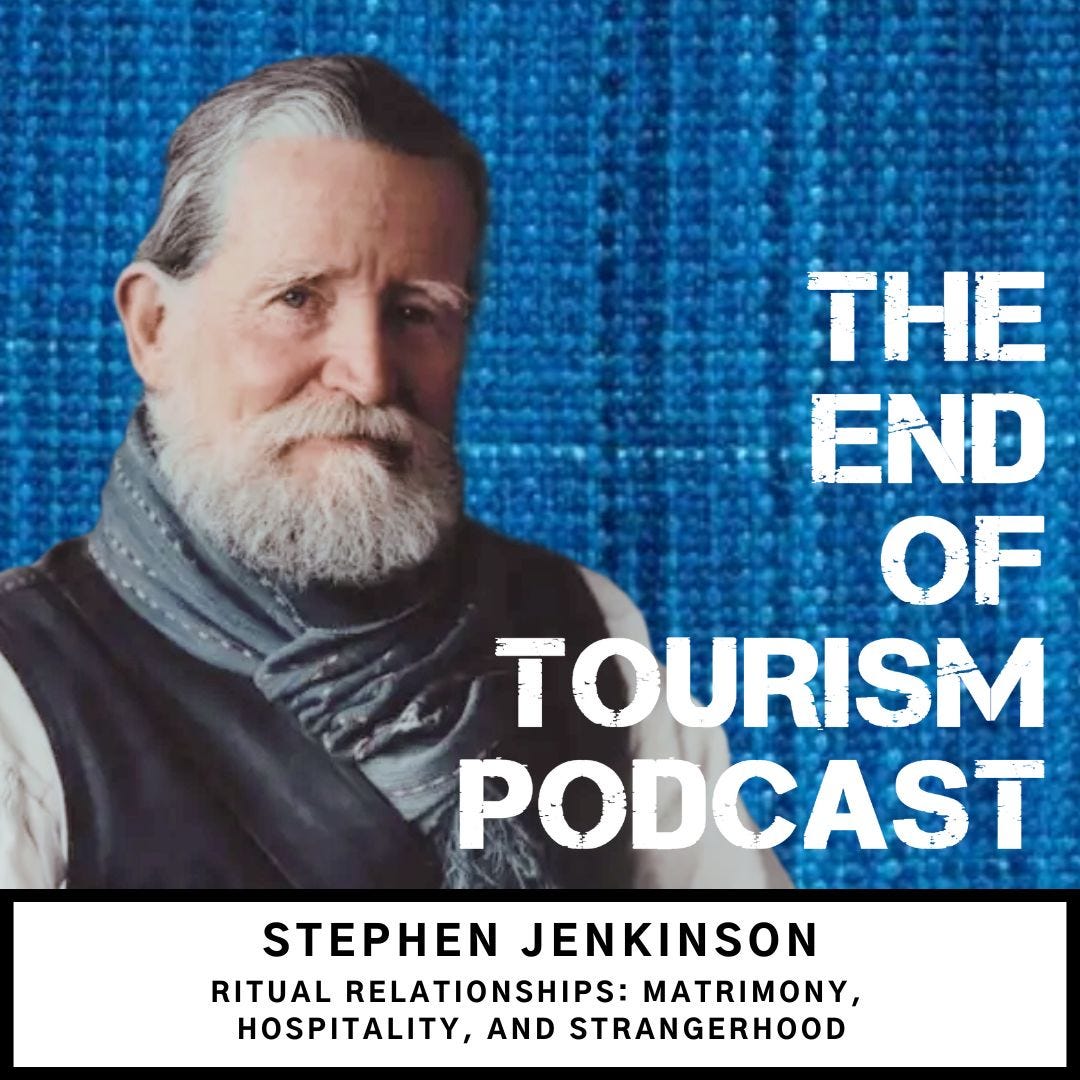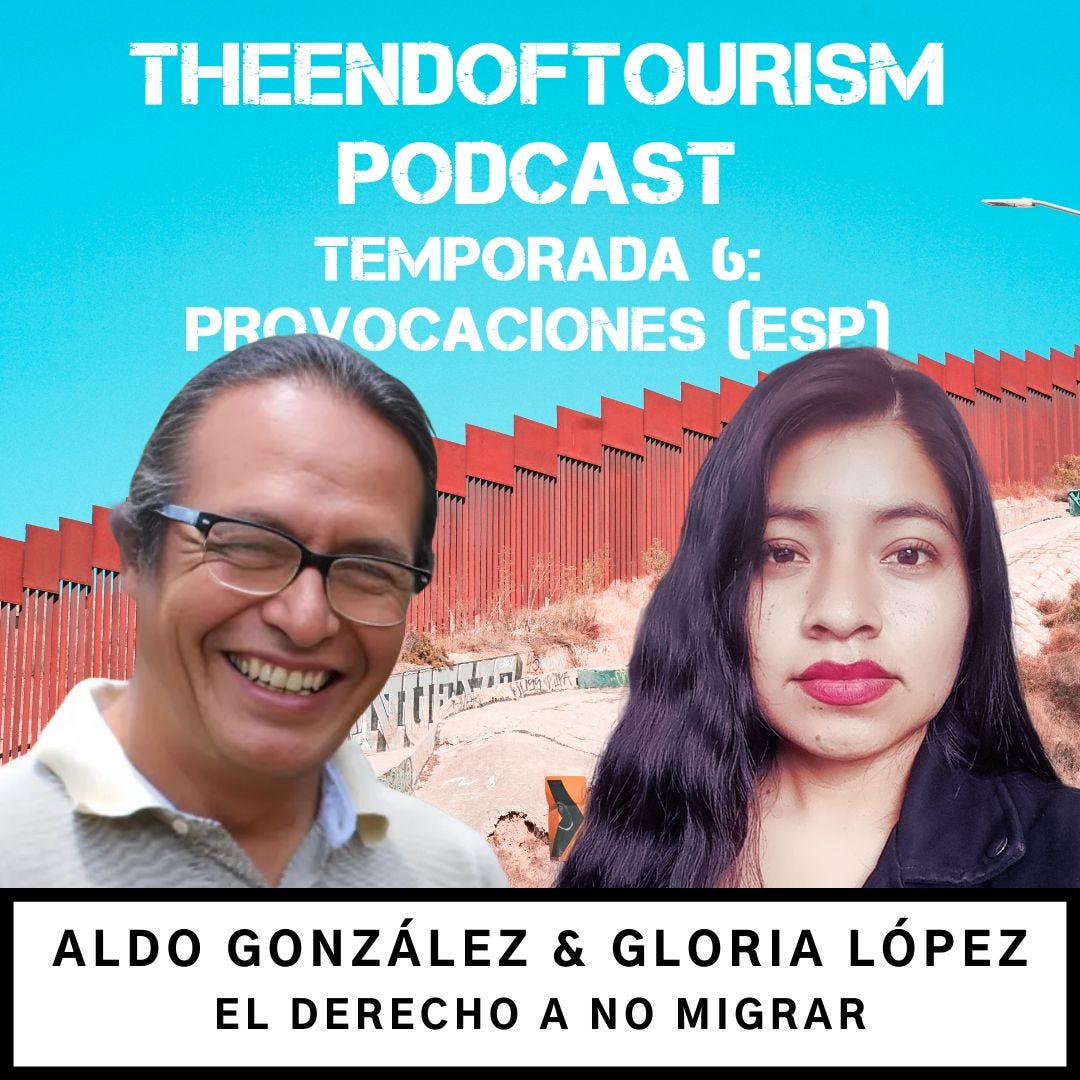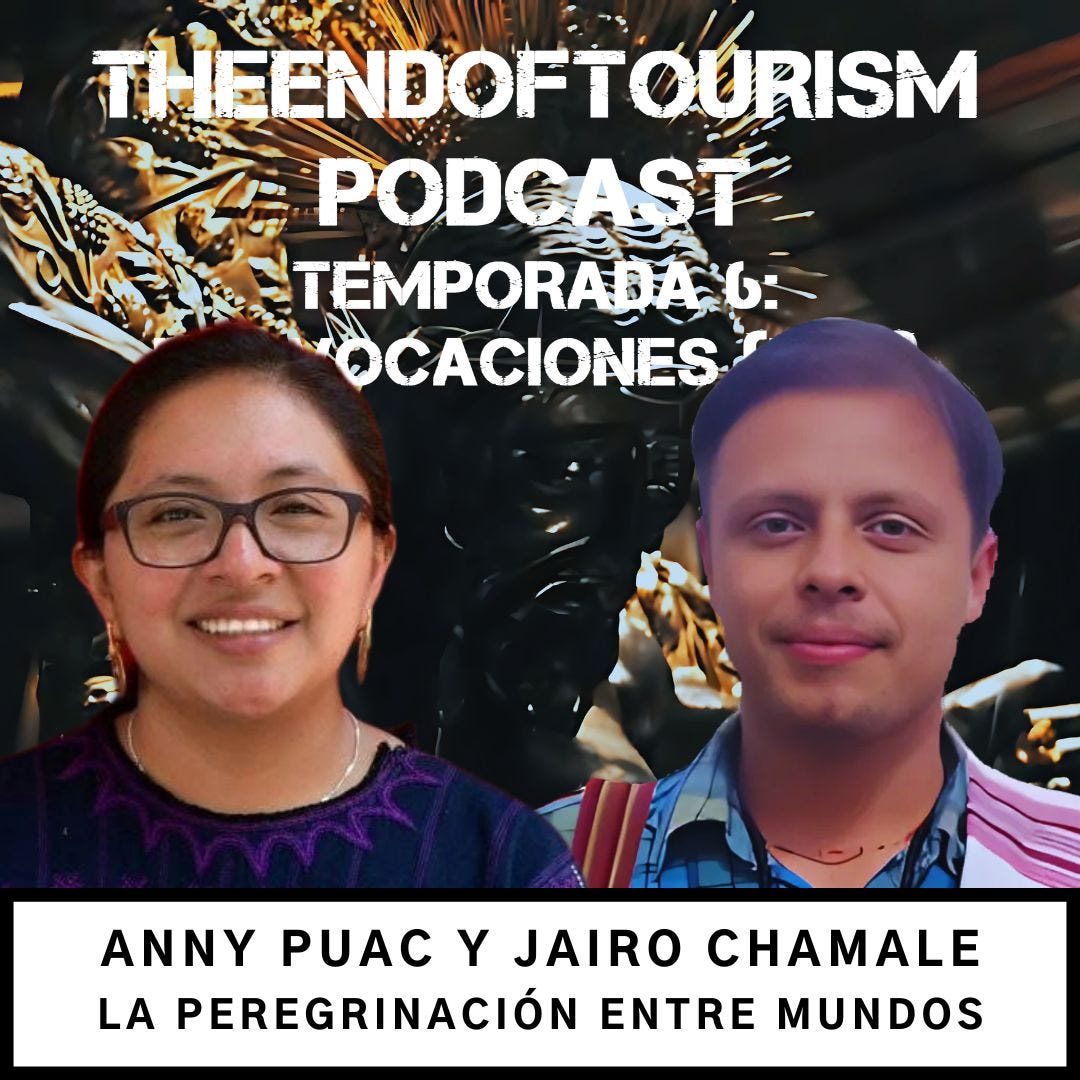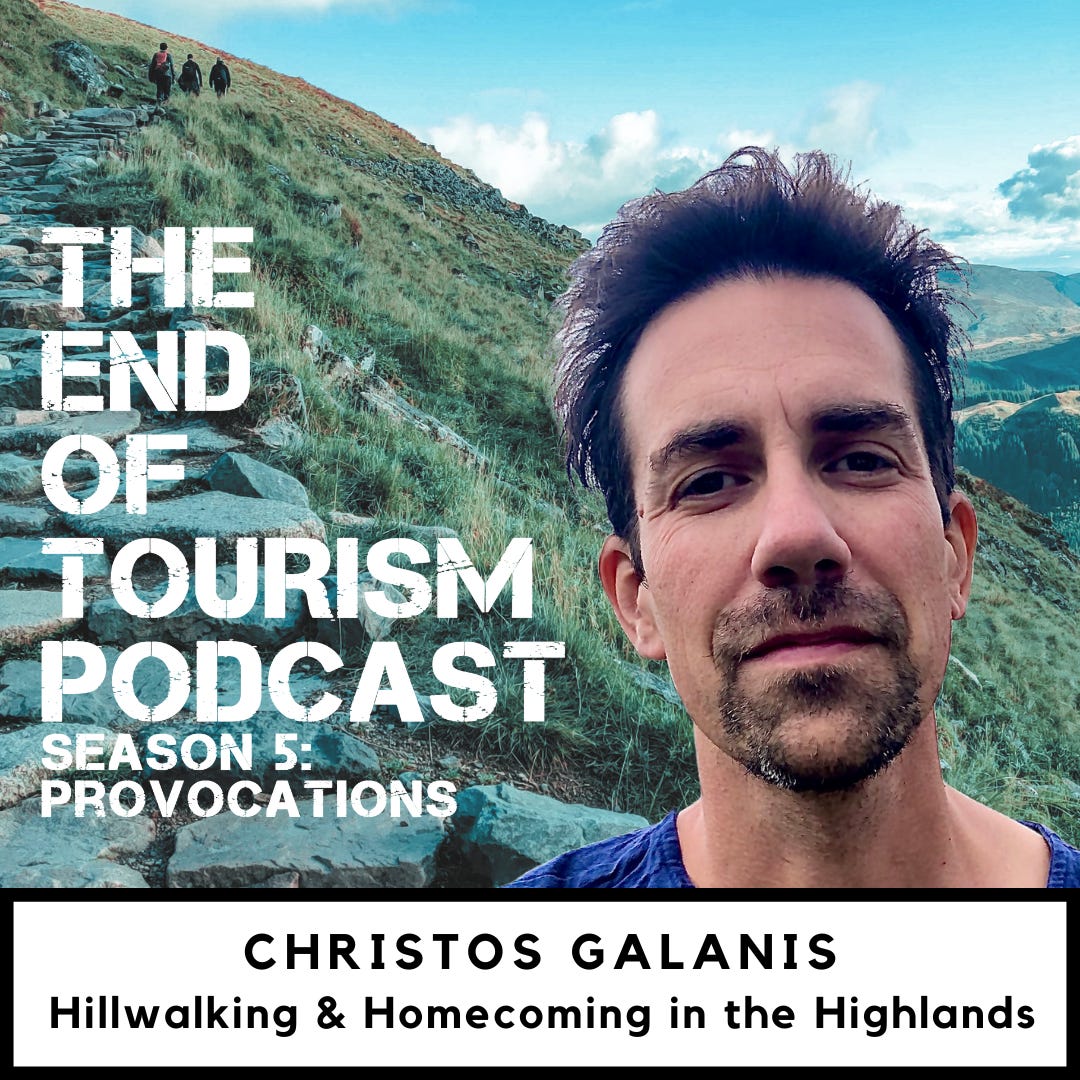S5 #5 | Fortress Conservation in the Congo w/ Martin Lena & Linda Poppe (Survival International)
Description
On this episode, my guests are Martin Lena and Linda Poppe of Survival International. They join me to discuss “fortress conservation” in the Congo, the issues facing Kahuzi-Biega National Park, and the recent victories of Survival International there.
Linda is a political scientist and director of the Berlin office of Survival International, the global movement for Indigenous peoples' rights. She is also part of Survival’s campaign to Decolonize Conservation, which supports Indigenous peoples, who continue to suffer land theft and human rights abuses in the name of conservation.
Martin is an advocacy officer for Survival International. He primarily works on Survival’s campaign to Decolonize Conservation and has collected testimonies directly from communities facing violations of their rights in the name of conservation.
Show Notes:
What Conservation Looks like in the Democratic Republic of the Congo
The Evictions of the Batwa
Safari Tourism in DRC Conflict
The Militarization of Conservation in Kahuzi-Biega National Park
Land Guards vs Land Guardians
Organizing Victory! Scrapping French Involvement in Kahuze-Biega
The German Government Continues to Fund the Park
Solidarity: How to Respond / Act in Concert
Homework:
Survival International Decolonize Conservation Campaign
Balancing Act: The Imperative of Social and Ecological Justice in Kahuzi-Biega
Transcript:
Chris: [00:00:00 ] Welcome to the End of Tourism Podcast, Martin and Linda. I'd love it if I could start by asking you two to explain to our listeners where you two find yourselves today and what the world looks like there for you.
Linda: Well, hi everyone. My name is Linda. I work for Survival International and I'm in Berlin. I'm at home, actually, and I look forward to talking to you and chatting with you.
It's dark outside already, but, well, that's, I guess, the time of the year.
Martin: And I'm based in Paris, also at home, but I work at Survival's French office. And how does the world feel right now? It feels a bit too warm for October, but other than that.
Chris: Well, thank you both for for joining me today. I'd like to begin by reminiscing on the season three interview that I had with your colleague Fiore Longo, entitled "Decolonizing Conservation in Africa and Beyond."
And in that interview, we discussed the history [00:01:00 ] of conservation as colonization in the context of Tanzania and the national parks that were built there and the indigenous lands that were stolen in order to do so. I'm curious if you two could offer a bit of background for our listeners in terms of the history of conservation in the Democratic Republic of the Congo and especially in regards to the Batwa people and the Kahuzi Biega National Park.
Linda: We were quite you know, astonished of the colonial history that, we find in the park where we're here to discuss today. Well, the Congo, obviously, you know, was a colony. And I think in this context, we also need to look at the conservation that is happening in the DRC today.
And a lot of the things that you have discussed with our colleague, feel very true for the DRC as well. And the, the park that we're going to look at today, I think it's probably [00:02:00 ] also the best example to start to explain a little bit what conservation looks like in DRC. It's an older park, so it was created a longer time ago, and it was always regarded as something that is there to protect precious nature for people to look at and not for people to go and live in.
And this is exactly what the problem is today, which we see continues, that the people that used to live on this land are being pushed outside violently, separated from the land which they call home, which is everything for them, the supermarket, the church, the school, just in the name of conserving supposed nature.
And unfortunately, this is something that we see all over the DRC and different protected areas that exist there, that we still follow this colonial idea of mostly European [00:03:00 ] conservationists in history and also currently that claim that they're protecting nature, often in tandem with international conservation NGOs.
In the park we look at today, it's the Wildlife Conservation Society, and they're, yeah, trying to get rid of the original inhabitants that have guarded these spaces for such a long time.
Martin: To build on that, in our campaign to decolonize conservation and survival, we often say that fortress conservation has deep colonial roots and you can definitely see that with the the actual history of the of Kahuzi Biega National Park because it started as a reserve that was created by the Belgian colonial government in 1937 and It was transformed into a national park after independence.
So in the 70s, but it was still designated as such following the lobbying of a Belgian conservationist. So it's really the continuation the Western and the European will to keep controlling the, [00:04:00 ] the independent territories. And that in Africa oftentimes was done through conservation.
Linda: And it also has this idea of, I think a lot of the conservation projects that we see, Martin just said it, there was also this post independence push on creating national parks, which was obviously related to the idea that Europeans might lose hold of control in certain areas, so they were pushing for the creation of national parks like the Kahuzi Biega National Park.
And that is the setting that we're talking about, basically, something that has very colonial roots and has been pushed into the post colonial era, but in a way which is actually very colonial.
Chris: Thank you both for that brief, brief history and introduction into what we'll be speaking about today, Linda, you mentioned that so many of the circumstances around the creation of these national parks includes the exclusion and [00:05:00 ] displacement of the original inhabitants.
And in this case, among others, this includes the Batwa people. And so I'd like to just give our listeners a little bit of a context for what's happened to the Batwa in the Democratic Republic of the Congo. And so the statistics tell us that "over 90 percent of the 87, 000 indigenous Batwa people in the park have lost legal access to their native territory, turned into conservation areas, and who are desperately poor," according to a 2009 United Nations report.
Now, in a recent Reuters article, it's written that, quote, "Local human rights and environmental experts say that the authorities failure to fulfill promises to the Batwa has undermined efforts to protect the forest and its endangered species, including some of the last populations of eastern lowland gorilla.
Some of the Batwa around the [00:06:00 ] park participate in the illegal poaching, mining, and logging that are destroying the gorilla's globally significant habitat. As a result, the conservation outlook for the park is critical, according to the International Union for Conservation of Nature." The article goes further and says that "the Batwa have no choice because they are poverty stricken, according to Josue Aruna, president of the province's environmental civil society group, who does community outreach for the Batwa."
It seems in this way that the land rights and traditional lifestyles of the Batwa are intimately tied to the health and survival of the ecosystems within the national park, which they've been excluded from, and that their poverty is a consequence of their displacement. Do you think that the issue is as simple as that?
Martin: It's always interesting to read these reports from the conservationists, whether it's the IUCN or the NGOs, because the problem is always "the local people. So they are poor and they [00:07:00 ] have no choice. They participate in poaching." and it's always their fault.
Like you were saying, if they end up being poor it's because they were evicted from the land. And as Linda was saying earlier, the forest and the land more generally is everything to them or was everything to them. So it's not only the place where they get food, it's also the whole basis of their identity and their way of life.
So once they lose that, they end up in our world, capitalist system, but at the lowest possible level. So, that's why they end up in poverty. But it's a problem that was created by the conservationists themselves. And even when you read Their discourse or their position about trying to improve the situation for the Batwa, it's always about generating revenue ,lifting them out of poverty, developing alternative livelihoods. But what we are campaigning for is not some alternative to the loss of their rights. It's Their land rights themselves. And to go to your other question [00:08:00 ] about the fact that the loss of their land rights has led to a degrading in the health of the ecosystem.
I think, yes, for sure. That has been the case, and it's what we're seeing all around the world in these protected areas that are supposed to protect nature. But actually, once you evict the best conservationists and the people that were taking care of the land for decades, then there is room for all kinds of exploitation whether it be mass tourism or luxury safaris or even mining and logging concessions.
So it's not a coincidence if 80 percent of t
























